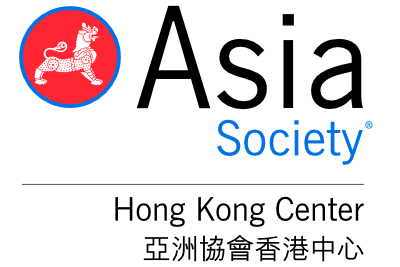News roundup: Chinese troops in Afghanistan
Top China news for February 6, 2017. Get this daily digest delivered to your inbox by signing up at supchina.com/subscribe.

PLA patrols in the Wakhan Corridor
Afghanistan and China share a border less than 60 miles long, and there is no modern road that crosses the Wakhan Corridor, the narrow strip of territory that connects the two countries and separates Tajikistan from Pakistan.
This has not stopped Chinese companies from investing across Afghanistan, particularly in copper mining. China’s perceived neutrality in Central Asia and the Middle East has allowed it to come to an understanding with the Taliban about the security of the Mes Aynak copper mine, which was signed over to China’s state-owned Metallurgical Group Corporation in 2008, although just last week that mine attracted critical news coverage because its exploitation will result in the destruction of ancient Buddhist relics. Afghanistan has also become an important symbolic part of Xi Jinping’s New Silk Road (aka One Belt, One Road) project: In September last year, the first freight train to travel from China to Afghanistan arrived in the northern city of Hairatan.
Many American observers have complained for over a decade that China has been enjoying the relative stability and security provided by the U.S. military presence in Afghanistan without contributing to it. But those complaints may soon be replaced with new suspicions if — or rather when — China starts to play a more active military role in Central Asia. Over the weekend, the Central Asia Caucasus Analyst reported that “overwhelming evidence,” including photographs, an eyewitness account, and statements from observers, including one from a “Chinese official familiar with the matter,” shows that People’s Liberation Army (PLA) troops have “undertaken joint patrols with their Afghan (and possibly also Tajik) counterparts on Afghan soil.” The reason for the patrols is most likely “Chinese concerns about illicit cross-border movements, in particular of alleged Uyghur extremists.”
The Afghan and Chinese governments, interestingly, continue to downplay or even deny the extent to which their militaries cooperate. For more context on China’s gradually increasing involvement in Afghan security issues over the past couple of years, see these two Wall Street Journal reports from February 2015 and March 2016.
Another brick in the cyber wall
In November last year, Beijing adopted a cybersecurity law that required technology companies and internet operators to cooperate with criminal and national security investigations, and hand over source code and other sensitive or proprietary data when the authorities deem it necessary. That law apparently did not go far enough for the increasingly anxious Cyberspace Administration of China, which on the weekend announced the draft version of yet another set of measures to control companies that offer internet products and services. The English version of Global Times, a state-owned tabloid newspaper, said that the intention is to “prevent online products and services from being manipulated by foreign forces and safeguard Party and government departments.” The draft measures are available in Chinese online here together with email and physical addresses to which the public is invited to send comments until March 4.
Mari-Cha Lion exhibition in Hong Kong
Our featured partner this week has a fascinating cross-cultural art exhibition in Hong Kong running until February 19. The centerpiece is the Mari-Cha Lion, a rare mid-11th- to mid-12th-century South Italian bronze sculpture bearing Arabic decorations, on show together with a selection of Asian objects from the Mr. and Mrs. John D. Rockefeller 3rd Collection and other private collections, as well as contemporary artworks by seven Asian artists. Click here for details.
Chinese deep-sea submersible begins Indian Ocean expedition
A ship carrying the Jiaolong (蛟龙 jiāolóng), China’s new manned deep-sea submersible, today set sail for a four-month scientific expedition to the northwest Indian Ocean. The Jiaolong is reported to have the greatest depth range of any manned research vehicle in the world, although it has not yet broken the depth records set by the Bathyscaphe Trieste or the Deepsea Challenger, which was famously piloted by filmmaker James Cameron.
Live Sinica tapings in Beijing
If you’re in Beijing on February 11 or 14, please come to a live taping of the Sinica Podcast — see the details here.
—Jeremy Goldkorn, Editor in Chief
This issue of the The China Project newsletter was produced by Sky Canaves, Lucas Niewenhuis, and Jiayun Feng. More China stories worth your time are curated below, with the most important ones at the top of each section.
BUSINESS AND TECHNOLOGY:
-
China’s intelligent weaponry gets smarter / NYT (paywall)
The U.S. “no longer has a strategic monopoly” on military technology that integrates artificial intelligence (AI), such as long-range missiles that avoid defenses and make targeting decisions semi-autonomously and speech-recognition software that can be applied for surveillance. Chinese businesses have recently made key moves forward in AI research: Less than a month ago, tech giant Baidu hired top AI engineer Qi Lu over from Microsoft, but Chinese companies have been investing in the space for years (listen to this Sinica Podcast with Andrew Ng, chief scientist of Baidu for more). Military-applied AI has a smoother path in China, where technology companies and the government have a “cozy relationship,” whereas the U.S. tech world is stuck in a dilemma made public as a result of the Snowden revelations: Silicon Valley companies must keep a distance from the U.S. government in order to expand into the China market, or partner with the Pentagon and get shut out from China.
- In pictures: C919, China’s answer to Airbus A320 and Boeing B737, set to make debut flight – China’s airlines have placed 570 orders for the aircraft / SCMP
- Overseas Chinese acquisitions worth $75 billion canceled last year / CNBC
- Chinese luxury shoppers’ newest destination: China / WSJ (paywall)
- China services sector extends strong growth in January but pace eases: Caixin PMI / Reuters
- China to add more than 50 million new urban jobs in 2016-2020: cabinet / Reuters
POLITICS AND CURRENT AFFAIRS:
-
China welcomes Mattis’s emphasis on South China Sea diplomacy / Reuters
A recent buildup of U.S.-China tensions and anxiety among U.S. officials has diffused slightly following comments made during a visit to Japan by the new U.S. secretary of defense, Jim Mattis. Mattis affirmed a commitment to “exhaust all…diplomatic efforts” to resolve South China Sea issues, adding that “at this time, we do not see any need for dramatic military moves.” Nonetheless, Mattis’s remarks that the U.S. will continue to defend Japan’s position on the islands it claims to the east of China and will continue to support a missile defense system in South Korea frustrated the Chinese foreign ministry. -
Senior Chinese health official to attend Vatican summit on organ trafficking / SCMP
Reflecting China’s new push to voice opposition to organ trafficking (the practice of harvesting organs from prisoners was legal in the country up until 2015), and perhaps connected to recent efforts to establish diplomatic ties between China and the Catholic Church, a top Chinese health official will attend a Vatican summit on organ trafficking this week. For more background on controversial organ donation regulations in China, see this South China Morning Post report. For more on the recent unsteady outreach between Chinese and Vatican officials, see this Sinica Podcast and a follow-up Q&A with Ian Johnson, a veteran journalist and scholar of religious issues in China.
- Deleted postings about missing Chinese billionaire hint at tensions – read more about Xiao Jianhua here / Reuters
- China protests U.S. sanction list on Iran that hits Chinese firms / Reuters
- Korea sees China’s ire over missile shield in export hurdles / Bloomberg
- Managers held over China massage parlor fire that killed 18 – in Tiantai county, Zhejiang Province / ABC News
SOCIETY AND CULTURE:
-
The People’s Daily urges “non-commercial surrogate motherhood” / People’s Daily (in Chinese)
On Friday, the People’s Daily published an article arguing for a relaxation of regulations on “non-commercial surrogate motherhood” because infertility is a common problem for many Chinese people, especially older couples who want to have a second child under the new birth policy. According to the article, of the roughly 90 million Chinese couples who are eligible to have a second child, 60 percent of wives are over 35 years old, and 50 percent are over 40. People’s Daily also launched a poll on the social media site Weibo to ask readers’ opinions, but the poll was removed after attracting large waves of online criticism. Comments included “The government has no sense of shame at all in encouraging families to have more babies” and “What does non-commercial surrogacy mean? Who is willing to do this if not for money?” -
Rong Jian on thought and scholarship in China / The China Story
Rong Jian 荣剑 was a Ph.D. candidate in Marxist philosophy at Renmin University in Beijing in 1989. His academic career was derailed by the tumult of that year, and he became a businessman. In 2010, he began publishing essays on society, philosophy, and the place of intellectuals in China. His latest essay is provocatively titled “A China Bereft of Thought.” The link above connects to an introduction and translation of the essay by the scholar Gloria Davies.
- Chinese doctor’s dash underlines private healthcare challenges / Financial Times (paywall)
- The world is eating Chinese caviar (and doesn’t know it) / That’s Beijing
- Fashioning a revival of ancient Chinese attire / Straits Times
- In pictures: Millions of Chinese workers return to work after New Year celebrations / SCMP






